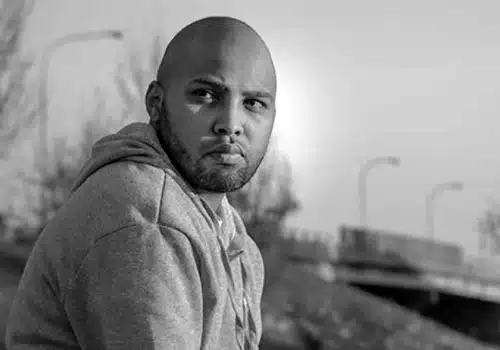
Are you exploring benzo treatment options? Immediate steps include medical detox and therapy. Find out about effective treatments, what to expect, and how they can pave the way to recovery from benzodiazepine dependence in our comprehensive guide.
Key Takeaways
- Benzodiazepines are commonly used for treating anxiety disorders, insomnia, and alcohol withdrawal, but they have a high potential for misuse and dependence, requiring careful prescribing and monitoring.
- Professional intervention and a personalized detox program, such as the one offered at Mayflower Recovery, are crucial for safely managing benzodiazepine dependence and withdrawal symptoms.
- Long-term recovery from benzodiazepine addiction involves comprehensive rehab and therapy, development of coping skills, and support networks, as well as the consideration of alternative medications and non-pharmacological treatments.
Understanding Benzodiazepine Use and Abuse
Benzodiazepines are potent medications used to reduce the activity of the nervous system, resulting in sedation, anxiety reduction, and prevention of seizures. They work by potentiating the effect of the neurotransmitter gamma-aminobutyric acid (GABA) at the benzodiazepine receptors, which results in the calming effect. As a result, prescribed benzodiazepines have found their place in treating primary anxiety disorders, situational anxiety, insomnia, agitation, and managing alcohol withdrawal syndromes.
Their complex functioning and diverse actions in the central nervous system, however, render them susceptible to misuse.
The Role of Benzodiazepines in Medicine
Benzodiazepines have a wide range of therapeutic uses, including the treatment of acute situational anxiety, chronic anxiety disorders, insomnia, and alcohol withdrawal syndromes. They are metabolized mainly via oxidation by cytochrome P450 enzymes and reach peak serum levels within 30 minutes to 2 hours after oral administration. However, their use is not without risks. Common adverse effects of benzodiazepine use include sedation, slowed reaction time, impaired memory, and the potential development of tolerance to these sedative effects.
Specific commonly prescribed benzodiazepines like Valium, Xanax, and Ativan are frequently used to treat conditions such as bipolar disorder and insomnia. Unfortunately, quick tolerance to their hypnotic effects is a common occurrence.
Recognizing Benzodiazepine Misuse
Benzodiazepine misuse, a form of drug abuse, includes consumption for non-medical purposes such as achieving a high by oral intake or crushing pills to snort, often leading to effects like sleepiness, mood relaxation, amnesia, hostility, and disturbing dreams. Paradoxically, misuse can also lead to increased excitement, irritability, aggression, hostility, and impulsivity. Factors contributing to a benzodiazepine use disorder include high dosage, long durations of therapy, and using benzodiazepines with high potency.
Long-term use of benzodiazepines for treating anxiety disorders can lead to:
- Dependence
- Tolerance
- Increased risk of withdrawal
- Rebound symptoms
- Misuse
There’s even an association between benzodiazepine use and a higher likelihood of suicide in certain populations. To make matters worse, benzodiazepine abuse often occurs as part of polydrug abuse, often involving substances like opioids. This underscores the need for caution in prescribing benzodiazepines, particularly at higher dosages or to patients with a history of disinhibited behavior, to prevent furthering misuse patterns.
Immediate Steps for Addressing Benzo Dependence
Upon recognizing severe benzodiazepine dependence, immediate consultation with healthcare professionals is vital. Inpatient treatment options, like those offered by Mayflower Recovery, should be considered for effective management and recovery from benzodiazepine dependence. Mayflower Recovery provides a range of services including detox and inpatient rehab specifically for addiction treatment, which encompasses benzodiazepine dependence.
Evaluating the Severity of Dependence
A precise evaluation of dependence severity is vital to determining the appropriate treatment course. Patients considered to have a lower risk of relapse and harm during benzodiazepine tapering are typically on a starting dose of 10 mg diazepam equivalent or less, have achieved a substantial dose reduction before tapering, and have no history of seizures.
Referral to personalized detox programs can be obtained through services like SAMHSA’s National Helpline, indicating the recognition and facilitation of criteria-based tapering strategies.
Importance of Professional Intervention
The high risk of severe withdrawal symptoms and potential complications when quitting without medical guidance necessitates professional intervention in benzodiazepine addiction. Comprehensive professional support is necessary to address co-occurring mental health conditions and the complex physical effects of benzodiazepine dependence. Healthcare professionals can employ prescribing interventions like staged dispensing as part of a managed detoxification process, helping patients to taper off benzodiazepines safely.
Patients who display reluctance to discontinue benzodiazepines or have a heightened risk for relapse, possibly due to concerns about respiratory depression, can benefit significantly from specialized outpatient or residential addiction services.

Medical Detoxification: The First Stage of Recovery
Medical detoxification serves as the foundational step in benzodiazepine addiction treatment, focusing on safely managing withdrawal symptoms. Detox protocols often involve substituting short-acting benzodiazepines with long-acting ones, such as diazepam, followed by a controlled and gradual tapering off of the drug.
The goal of medical detox is to reduce the risks of abrupt cessation, stabilize the patient’s condition and facilitate a smooth transition to comprehensive treatment and recovery.
Managing Withdrawal Symptoms Safely
During detox, withdrawal symptoms need to be managed safely under medical supervision. Medical professionals may use cross-tolerance strategies, substituting benzodiazepines with other medications to manage withdrawal symptoms. Other medications can also be administered during detox to manage withdrawal symptoms safely and prevent complications.
Staged dispensing and regular clinical review effectively manage benzodiazepine withdrawal, prevent non-adherence, and reduce seizure risk.Due to potential complications such as seizures and cognitive dysfunction, medical supervision is a must during benzodiazepine detoxification.
Personalized Detox Programs at Mayflower Recovery
At Mayflower Recovery, personalized detox programs are offered that take into account the individual’s health status and history of substance use. Switching to a long-acting benzodiazepine is often part of Mayflower Recovery’s detox and maintenance therapy, tailored to support patient safety and comfort except for in elderly patients.
The detox program at Mayflower Recovery provides a supportive environment with medically supervised safety measures and necessary medications to assist in breaking the grip of benzodiazepine addiction.
Comprehensive Rehab and Therapy Options
Following detox, individuals can proceed to the next stage of recovery, which involves comprehensive rehab and therapy options. Post-detox recovery includes:
- Structured treatment programs
- Recreational therapy
- Expressive therapy
- Group therapy
- Family therapy
- Trauma-focused therapy
These therapies are overseen by trained professionals. Continuing the recovery process can involve participating in individual counseling and group therapy sessions, providing support and further treatment strategies after medical detox.
Cognitive-behavioral therapy aids significantly in managing the psychological aspects of benzodiazepine withdrawal, complementing the gradual reduction in medication dose. Non-pharmacological treatments, including:
- Relaxation techniques
- Massage therapy
- Acupuncture
- Cognitive behavioral therapy
- Teletherapy
Natural remedies and relaxation techniques are highly recommended to supplement or replace most commonly prescribed medications for addressing anxiety and panic disorder.
Holistic Approaches and Supportive Care
Holistic recovery options are designed to support individuals throughout their benzodiazepine treatment journey, encompassing a blend of traditional and alternative therapies. The holistic approach includes providing a serene recovery environment alongside nutritious food options, playing a crucial role in fostering an optimal healing atmosphere.
Professional support is a fundamental component of these holistic recovery options, assisting patients to navigate their recovery with both conventional and alternative therapeutic methods.
Long-Term Management Strategies
Recovery from benzodiazepine addiction requires creating a new lifestyle conducive to living without the use of drugs. Relapse prevention is a critical element of this new lifestyle, entailing continuous management and adjustment.
Support groups and organizations play a crucial role in providing social reinforcement and accountability for individuals in long-term recovery. SAMHSA’s National Helpline is available 24/7 to offer confidential referrals to local treatment options and support groups, aiding individuals in sustaining their recovery journey.
Developing Coping Skills
To avoid relapse and escalation of the underlying condition after discontinuing benzodiazepine use, it’s imperative to develop coping skills for managing stress and anxiety.
In the context of long-term benzodiazepine recovery, developing coping skills entails learning to deal with cravings and managing stress through techniques such as cognitive therapy and mind-body relaxation.
Building a Support Network
For a lasting recovery from benzodiazepine dependence, it’s crucial to build a robust support network. SAMHSA’s National Helpline offers a 24-hour confidential information service in English and Spanish, providing referrals to local treatment facilities and support groups. Participation in self-help groups such as 12-step programs is integral to building a strong support network.
Mayflower Recovery offers comprehensive post-detox support, guiding patients toward further recovery steps, which include support groups and connections with mental health professionals. Establishing a supportive social network and ensuring stable housing condition can serve as key factors for successful long-term recovery from benzodiazepine addiction.
Alternative Medications and Non-Pharmacological Treatments
Alternative medications and non-pharmacological treatments can be used to manage conditions previously treated with benzodiazepines. Nonbenzodiazepines and sedating antidepressants are recognized alternatives for managing various conditions such as insomnia and anxiety disorders. Some nonbenzodiazepine options for managing insomnia include:
- Trazodone
- Amitriptyline
- Doxepin
- Nefazodone
- Mirtazapine
These medications provide therapeutic benefits without the same risk of addiction as benzodiazepines, making them a safer alternative to benzodiazepine prescriptions.
Sedating antidepressants, such as trazodone, offer a sleep-inducing effect, serving as an alternative treatment for insomnia in patients who may benefit from pharmacotherapy. Buspirone provides a treatment option for generalized anxiety disorder with a favorable side effect profile, without the addictive properties associated with benzodiazepines.
Sedating Antidepressants and Other Pharmacotherapies
Pharmacological alternatives with anxiolytic efficacy to benzodiazepines include:
- Antidepressants
- Anticonvulsants
- Buspirone
- Certain antihypertensive agents
- Newer neuroleptics
These alternative pharmacotherapies can be valuable for managing symptoms previously treated with benzodiazepines.
Hydroxyzine, an antihistamine, is occasionally opted for to manage generalized anxiety disorder due to its sedative properties. Despite hydroxyzine’s anxiolytic effects, its use is limited by sedation and dry mouth side effects, and a lack of extensive research evidence.
Behavioral and Lifestyle Interventions
Behavioral and lifestyle interventions can also play a crucial role in managing benzodiazepine dependence. Engaging in moderate-intensity exercise and practicing tai chi have been shown to improve self-rated sleep quality and reduce daytime sleepiness among older adults. Regular exercise can play a significant role in managing symptoms of anxiety and contribute to overall mental wellness.
Dietary modifications such as reducing caffeine intake and avoiding substances like drugs and alcohol can effectively manage anxiety symptoms. Exposure to bright light therapy in the evenings can treat specific sleep disorders such as early-morning awakening insomnia.
Navigating Insurance and State-Funded Options
Comprehending your insurance and state-funded choices is crucial in accessing cost-effective addiction treatment services. Marketplace health insurance plans must cover mental health and substance abuse services as essential benefits, including behavioral health treatment, inpatient services, and substance use disorder treatments like those for benzodiazepine addiction.
Understanding Coverage for Addiction Services
Insurance plans under the Affordable Care Act (ACA) are mandated to provide comprehensive coverage for addiction treatment, similar to coverage for other medical procedures. These plans offer assistance with inpatient services including medical detox programs for addiction. There are no lifetime or annual dollar limits on coverage for essential health benefits, which includes mental health and substance use disorder services. And persons with pre-existing conditions, such as substance use disorders, cannot be denied coverage or charged higher rates by Marketplace insurance plans. However, state differences in coverage are influenced by state-specific Medicare and Medicaid programs.
The ACA’s expansion of benefits includes addiction treatment for young adults up to 26 years old under their parents’ health plan. And under the ACA, insurance plans are available with varying percentages of expense coverage, from Bronze at 60% to Platinum at 90%.
Accessing State-Funded Programs
For those lacking private insurance, utilizing resources like SAMHSA’s National Helpline can be a key step in finding accessible state-funded treatment options. The helpline provides:
- Confidential, free information services about substance use disorder treatments
- Referrals to local treatment facilities
- Support groups
- State-funded programs
Operating 24 hours a day, the helpline offers comprehensive support and guidance.
The ACA has provided access to substance abuse treatment for 32 million Americans.
Mayflower Recovery’s Unique Approach to Benzo Treatment
At Mayflower Recovery, we offer a unique approach to benzodiazepine addiction treatment. Our personalized approach ensures that each patient receives individualized care tailored to their needs, contributing to our success in helping clients achieve lasting sobriety.
As a state-of-the-art detox and inpatient addiction treatment center, we are acclaimed as one of the best in New England.
Tailored Treatment Plans
Our commitment to personalized care is manifested in our detox and residential drug and alcohol rehab programs, which are tailored to meet individual patient needs and goals. Our approach to addiction treatment is implemented within a top-tier detox and inpatient treatment center that is highly regarded in New England.
World-Class Facilities and Staff
At Mayflower Detox, we offer world-class addiction treatment with a team of experienced staff in Massachusetts. Our amenities include a fireplace great room, dedicated entertainment rooms, and a variety of activities, conducive to recovery and comfort.
In conclusion, benzodiazepine misuse is a pressing issue that necessitates comprehensive treatment strategies. From understanding benzodiazepine use and abuse to recognizing the importance of immediate steps for addressing benzo dependence, every facet of this journey is crucial. Mayflower Recovery is committed to providing world-class facilities and a dedicated team of professionals to help individuals overcome benzo dependence. With personalized treatment plans and a holistic approach to recovery, we strive to guide our patients towards a healthier, drug-free future. Remember, overcoming addiction is not a solitary journey but a communal effort. Reach out to us today and take that first step towards recovery.
We can help your or someone you love with a Benzo addiction.
Call Mayflower Recovery today at 978-737-8979 to explore our alcohol addiction treatment and let us help you on your or your loved one’s journey towards freedom.












